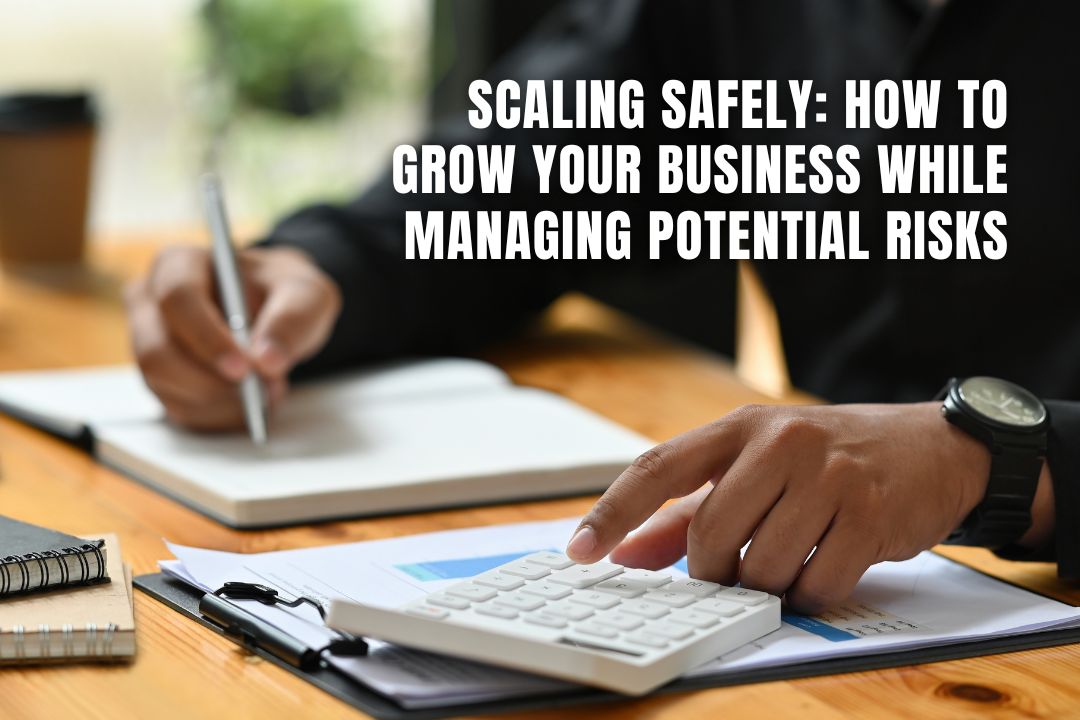
Almost 97.5 percent of businesses in Australia are small businesses, according to a recent Small Business Data Report. If you are one of the millions of small business owners in this group, there will come a time when you will have to decide whether to set the scene for your business to grow. Scaling your business centres around much more than whether your business has the capacity to grow, but also relies on finding the solution to the new risks that your business will face, like whether your workforce is ready to take on new tasks or how to effectively manage your business budget as you scale.
There are many routes for a business to scale up. Proven successful strategies that many businesses have used include increasing their sales by understanding customer behaviour and utilising customer relationship management (CRM) software, or investing in technology to automate repetitive tasks. However, only 1 in 5 companies successfully scale past their initial success as many firms often fall prey to some of the most common mistakes of scaling: scaling too fast or losing focus.
It is particularly important that you are ready to pivot during your scaling process if you need to, thanks to the competitive nature of the business environment. At the same time, you should also remain focused on your chosen route of scaling. In short, don’t try to do too much at the same time. Spend time building a growth plan for your business and stick to it. Don’t forget to spend some time reviewing new risks your business may encounter during the scaling process- or how you can protect your business with insurance when scaling.
When businesses get ready to scale, many of them focus on common risks like having access to enough finance or having a thorough business growth plan in place. However, very few small businesses consider whether their current business structure is still the best choice after incorporating their scale up plan.
A lot of this will be determined by your plans for scaling. For instance, do you plan on taking on a business partner? You may find it better to change your business structure from a sole proprietorship to a limited liability company (LLC) or corporation. With these businesses, limited liability can provide useful protection for the owner from the business’s debts and liabilities- a useful thing when trying to grow your business. If you do change your business structure, there are also other considerations to make like whether you need to upgrade your insurance. You will need to tell your insurer about the change in business structure as this can affect your policy.
Spending time implementing a rigorous quality assurance program will ensure that your business does not overlook or compromise on quality delivered as it scales. Quality control does not relate solely to product quality either, but it can also apply to your customer service or production. A good quality assurance program can help you maintain your reputation and reliability as a business in competitive markets. To maintain quality control when scaling, ensure your chosen tools and methods are documented, transparent and wide-ranging to include testing, auditing and reviewing.
Scaling your business comes with new and exciting opportunities- and risks that come with those new doors. Taking the time to protect your business from the expected and unexpected can make all the difference to your success as you grow.
Scaling allows your business to expand and reach new heights, tapping into new markets, increasing revenue, and potentially improving profitability. It's an essential step for long-term sustainability and competitiveness.
Common risks include financial constraints, workforce readiness, changes in business structure, potential loss of focus, and maintaining product/service quality. Identifying and addressing these risks is crucial for successful scaling.
Stay adaptable to pivot when necessary but remain focused on your growth plan to avoid spreading resources too thin. Avoid moving too fast or losing focus, and invest time in strategic planning to mitigate risks effectively.
Implement a robust quality assurance program that covers product/service quality, customer service, and production processes. Document and transparently communicate your quality control methods to maintain reputation and reliability.
Yes, it's essential to review your business structure to ensure it aligns with your growth plans and offers necessary protections, such as limited liability. Consider changing your structure if needed, and remember to update your insurance policies accordingly.
Identify potential risks early on and develop strategies to mitigate them. Invest in insurance coverage tailored to your evolving business needs, including changes in structure and expansion plans. Stay proactive in addressing both expected and unexpected challenges.